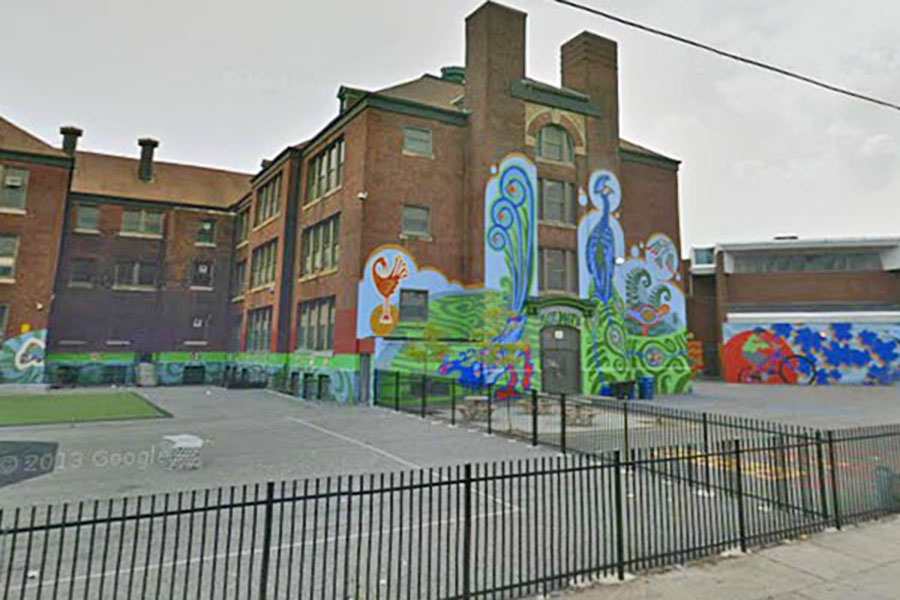Attorneys for a Philadelphia student who was raped inside a public elementary school urged a three-judge appellate panel this week to let the student’s case against the school district move forward even though his mother allegedly missed a deadline by nearly two years to file a complaint.
The student, identified in court papers as N.B., was raped at the William C. Bryant Elementary School in West Philadelphia in October 2011. Prior to the rape, N.B. had been subjected to ongoing, pervasive bullying by some classmates who perceived him to be gender-nonconforming, according to court records.
On Oct. 25, 2011, while N.B. was inside a restroom, two classmates held him while a third classmate penetrated him anally with his penis. The assailants threatened to kill N.B. if he told anyone about the incident. But N.B. eventually told his mother, who promptly withdrew him from the school, according to court records.
On Jan. 7, 2014, N.B.’s mother filed an administrative complaint on behalf of N.B. with the Pennsylvania Human Relations Commission. She alleged violations of the state Human Relations Act by school-district officials due to N.B.’s sex and race. However, the PHRC dismissed the complaint on the basis that PHRC complaints must be filed within 180 days of the last discriminatory act being alleged. N.B.’s mother didn’t file the PHRC complaint until 787 days after the last discriminatory act, according to court records.
N.B.’s mother subsequently filed suit against the school district in Philadelphia Common Pleas Court, seeking an unspecified amount of monetary damages along with attorneys’ fees and court costs. But on Aug. 27, 2017, Judge Frederica Massiah-Jackson dismissed the suit, citing the missed PHRC deadline. N.B.’s mother filed an appeal with Commonwealth Court, which held oral arguments in Center City on Nov. 13.
Commonwealth Court Judges Eileen Ceisler, Dan Pellegrini and Robert Simpson must decide whether to allow the civil lawsuit filed by N.B.’s mother to move forward despite her filing the earlier PHRC administrative complaint after the deadline.
Bruce P. Merenstein, an attorney for the school district, argued that no unusual circumstance prevented N.B.’s mother from filing a timely PHRC complaint. “The trial court [Massiah-Jackson] absolutely got it right,” Merenstein told the panel. He also told the judges they didn’t have legal authority to waive the PHRC deadline requirement for N.B.’s mother.
David B. Berney, an attorney for N.B., argued that N.B. suffers from “emotional scars” due to his experience at Bryant Elementary School and shouldn’t be subjected to more suffering because his mother wasn’t “vigilant” in adhering to PHRC’s deadline.
In addition to being raped, N.B. routinely had slurs hurled at him and was physically assaulted at the school. The slurs included “faggot,” “bitch,” “pussy” and “nigga.” N.B. identifies as heterosexual, but on one occasion bulliers forced him to view a homoerotic video, according to court records.
Berney also reminded the judges that as a minor, N.B. is unable to file a complaint with PHRC on his own. “N.B. is legally incapable of filing a [PHRC] complaint because he’s under the age of 18,” Berney told the panel. “Only an individual over the age of 18 is entitled to bring a claim and to be sued.”
Moreover, Berney said that allowing the lawsuit filed by N.B.’s mother to move forward would be consistent with the state Human Relations Act’s goal of eradicating discrimination throughout Pennsylvania in an effective manner rather than penalizing a minor due to a technicality.
Pellegrini, one of the panel judges, appeared sympathetic to N.B.’s plight. “The facts of the case are horrific — where a 9-year-old is raped in the bathroom [of an elementary school],” Pellegrini told Berney.
Pellegrini noted that N.B. is permitted to file a federal lawsuit against the school district when he turns 18. Berney replied that federal lawsuits tend to be more expensive than state lawsuits. Berney also said it’s in the public interest to ensure that the state Human Relations Act covers student-on-student bullying if a protected class is targeted.
The school district contends the state Human Relations Act doesn’t cover student-on-student bullying. However, it remains unclear whether the three-judge panel will rule on that issue. The 30-minute court proceeding was focused on the narrow issue of whether the lawsuit filed by N.B.’s mother should have been dismissed due to the missed PHRC deadline.
Amanda Wible, a plaintiff in a separate case, also alleges violations of the state Human Relations Act by the Philadelphia school district due to student-on-student bullying. No deadline dispute is involved in Wible’s case. A Philadelphia judge sided with Wible in May and awarded her $500,000 in damages. But the school district recently filed an appeal in Commonwealth Court. Oral arguments in that dispute hadn’t been scheduled as of presstime.
After the hearing, Berney said he’s “cautiously optimistic” that N.B. will receive a favorable ruling. He said N.B. currently attends a Philadelphia public high school. Berney didn’t know N.B.’s exact age but said he’s younger than 18. Berney also said N.B.’s mother filed a complaint with PHRC as soon as she realized it was possible to do so.
Justin F. Robinette, a local civil rights attorney, attended oral arguments. Outside the courtroom, he expressed doubt the judges will grant Berney’s request. “Lawsuits get tossed all the time because filing deadlines were missed,” Robinette told PGN. “The judges clearly seemed concerned about the egregious harm that N.B. allegedly suffered at Bryant Elementary School. However, the degree of harm being alleged typically doesn’t help get around a missed deadline. If there was an unusual circumstance that prevented N.B.’s mother from filing a timely PHRC complaint, I think the judges would be more inclined to grant Mr. Berney’s request.”

